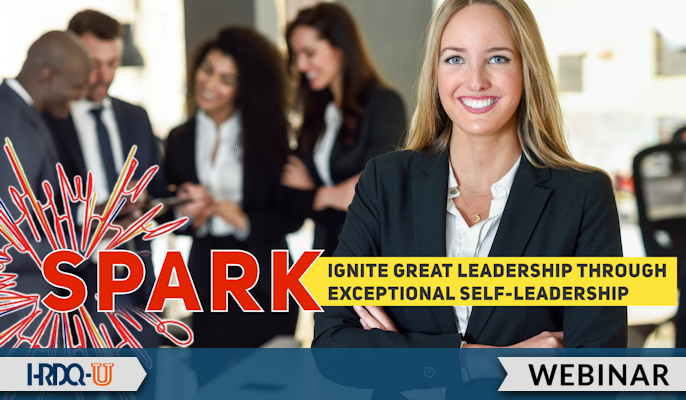
In March 2021, Gallup scored employee engagement as low as 15%. Add to this the current Great Resignation and the fact that, according to SHRM, less than 10% of employees actually use their organization’s EAP services … something has to change! Managers develop support and development for today’s landscape. Professional and leadership development go hand in hand.
Today, more than ever before, the foundational skills of time management, organizing, planning, and communication must be matched with managers and leaders also having confidence, influence, and courage for productivity, engagement, role, and life success.
Self-leadership is the ability to lead oneself: if you can’t effectively lead yourself, then this directly impacts the effectiveness of leading others. Ponder this: would you follow you? Dee Hock, founder of Visa, has been quoted saying, “If you want to lead, invest at least 40% of your time in leading yourself.”
Self-leaders understand that their influence, courage, and confidence impact performance, profit, and people. Great leadership starts with great self-leadership, and Office Professionals are more and more being seen as the essential leaders they always have been. This interactive and collaborative webinar will help fire up confidence, courage, and influence through self-leadership.
Sally Foley-Lewis inspires skills managers to be high-performing, purposeful, and productive. Obsessed with leadership and professional development that ensures people reach their potential. Sally’s presentations and programs positively impact your confidence, leadership, and results.
She is a global professional speaker and has authored multiple books. The drive to support and skill managers comes from her own CEO and senior leadership experiences. Sally delivers presentations, keynote speeches, workshops, and coaching – live online and face-to-face – to skill managers and boost productivity and self-leadership.
Blending 20+ years of working with a diverse range of people and industries in Germany, the Middle East, Asia, and across Australia. Sally has extensive qualifications, a wicked sense of humor, and an ability to inspire and make people feel at ease. Sally’s your first choice for mastering skills, facilitating action, and achieving results.
Connect with Sally on Instagram, YouTube, and at sallyfoleylewis.com.
Training Tools for Developing Great People Skills
This event is sponsored by HRDQ. For 45 years HRDQ has provided research-based, off-the-shelf soft-skills training resources for classroom, virtual, and online training. From assessments and workshops to experiential hands-on games, HRDQ helps organizations improve performance, increase job satisfaction, and more.
Learn more at HRDQstore.com
“Very relevant and helped me learn about how to apply myself.”
– Earl A.
“Definitely good food for thought, leading yourself before you can lead others sounds straightforward, but there’s a lot that goes into it!”
– Chelsie B.
“It was helpful and refreshing to consider our values, our voice, and our visibility and how we can influence all three.”
– Joyce L.

Sign up for more as a member of HRDQ-U
HRDQ-U offers much of its learning content free to visitors, including live and select webinars, blog posts, and more, with new events and posts shared every week. However, there is much more learning available. You can access our complete library of on-demand webinars and other training events and content by simply signing up.
3 Responses
Question: What are your thoughts on the 24-hour rule?
Answer: I’m not too sure exactly what you mean by 24-hour rule, Megan, but I’m going to I assume it means that you don’t need to be switched on, plugged in, tuned in, ramped up 24 hours a day, seven days a week, unless that’s what you’re paid to do. So if that’s what you mean, then I absolutely think it’s important that if you’re a leader, your role modeling, you’re not paying your people to be to be working 24 hours a day, it is unhealthy.
Question: How do you lead yourself when you are a perfectionist?
Answer: Well, it’s good to know that you’re a perfectionist. If you know you’re a perfectionist, then you have a choice, don’t you? You have a choice to work on that and to understand that further. And I think, you know, like, taking on board programs and training and learning around the strategies you can do and the feedback that you get from others will help you with that as well.
Question: How effective and feasible do you think self-leadership is, particularly in a work environment, where you’re constantly controlled by the surrounding environment? What are likely the results in such cases?
Answer: Self-leadership could be an inner journey, and I think it’s important that when we work on that, we can find strategies to deal with that, and I’m going to work through a few of them, and some of these might resonate for you. Hopefully that that might make sense as we work through some of these.